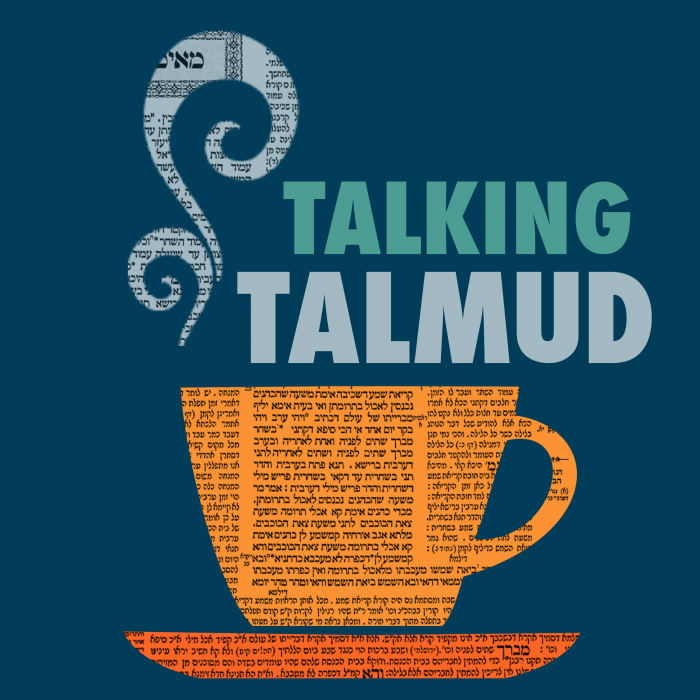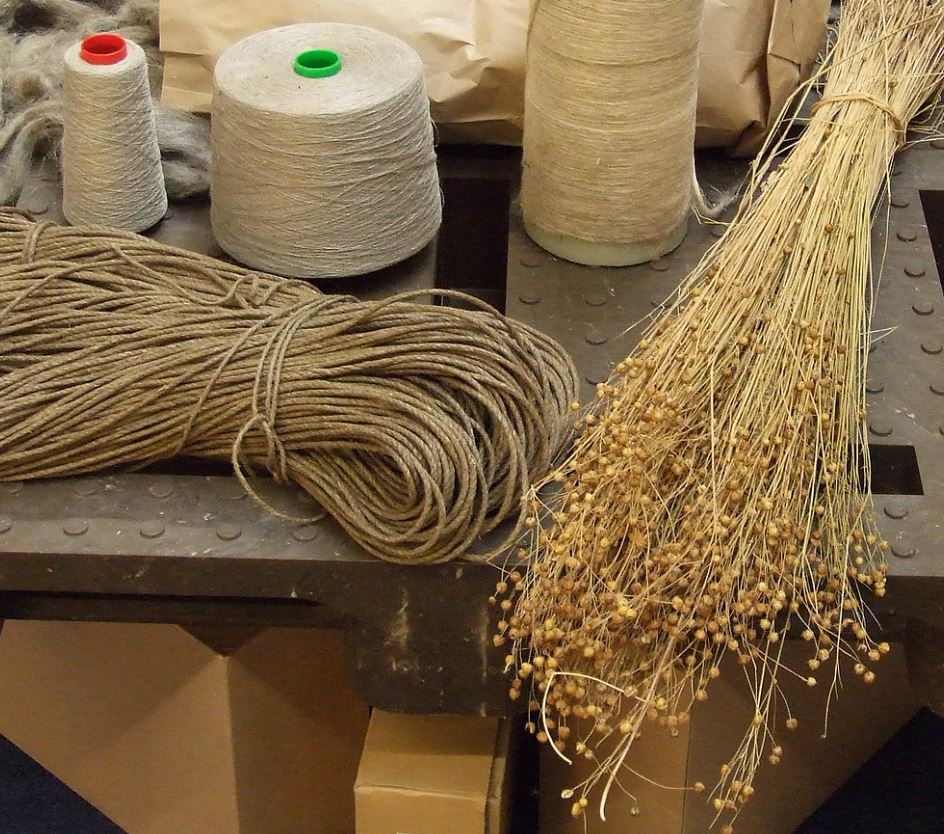Nedarim 80
וְאֶלָּא: דְּאָמְרָה ״קֻוֽנָּם הֲנָאַת רְחִיצָה עָלַי לְעוֹלָם אִם אֶרְחַץ״, מִשּׁוּם הָכִי מֵיפֵר לָהּ. דְּהֵיכִי תַּעֲבֵיד? תִּרְחַץ — מִתַּסְרָא הֲנָאַת רְחִיצָה עֲלַהּ, לָא תִּרְחַץ אִית לַהּ נִיוּוּלָא. וְרַבִּי יוֹסֵי סָבַר: אֶפְשָׁר דְּלָא רָחֲצָה, וּלְנִיוּוּל לָא חָיְישִׁינַן.
But rather, explain that she said: The benefit of bathing is konam for me forever if I bathe. And it is due to that reason that he may nullify her vow, as what can she do if there is no nullification? If she bathes, the benefit of bathing is thereby forbidden to her. And if she does not bathe, she will suffer temporary disfigurement [nivvula]. And Rabbi Yosei, who maintains that this is not a vow of affliction, maintains that it is possible for her not to bathe, as we are not concerned about her disfigurement.
אִי הָכִי, לִיתְנֵי הָכִי, רַבִּי יוֹסֵי אוֹמֵר: תְּנַאי זֶה אֵין בּוֹ עִנּוּי נֶפֶשׁ!
The Gemara raises a difficulty: If so, let the mishna teach like this: Rabbi Yosei says that this condition does not involve affliction, as the content of the vow itself is irrelevant, since she can fulfill the condition.
אֶלָּא דְּאָמְרָה: ״הֲנָאַת רְחִיצָה עָלַי לְעוֹלָם אִם אֶרְחַץ הַיּוֹם״. וְרַבִּי יוֹסֵי סָבַר: נִיוּוּל דְּחַד יוֹמָא לָא שְׁמֵיהּ נִיוּוּל.
The Gemara offers another explanation: Rather, explain that she said: The benefit of bathing is konam for me forever if I bathe today. And Rabbi Yosei maintains that nothing will happen if she refrains from bathing today, as the disfigurement resulting from not bathing for one day is not called disfigurement.
שַׁנֵּית ״אִם אֶרְחַץ״. ״אִם לֹא אֶרְחַץ״ הֵיכִי דָּמֵי? אִלֵּימָא דְּאָמְרָה: ״תִּיתְּסַר הֲנָאַת רְחִיצָה לְעוֹלָם עָלַי אִם לֹא אֶרְחַץ הַיּוֹם״ — לְמָה לָהּ הֲפָרָה? תִּתְסְחֵי! אָמַר רַב יְהוּדָה: דְּאָמְרָה ״הֲנָאַת רְחִיצָה עָלַי לְעוֹלָם אִם לֹא אֶרְחַץ בְּמֵי מִשְׁרָה״.
The Gemara asks: You have adequately answered the expression: If I bathe, but as for the vow: If I do not bathe, what are the circumstances? If we say that she said: The benefit of bathing shall be forbidden to me forever if I do not bathe today, why does she need nullification at all? Let her bathe today and nothing will be forbidden. Rav Yehuda said: The mishna is referring to a case where she said: The benefit of bathing is forbidden to me forever if I do not bathe in foul water in which flax was soaked. The husband can nullify this vow, as it will make her repulsive, which is a form of disfigurement.
דִּכְווֹתֵיהּ דְּקָתָנֵי ״אִם לֹא אֶתְקַשֵּׁט״ — אִם לֹא אֶתְקַשֵּׁט בְּנֵפְטְ. לִכְלוּךְ הוּא!
The Gemara raises an objection: In that case, you must similarly explain that which the tanna teaches: If I do not adorn myself, to mean: The benefit of adorning myself is forbidden to me forever if I do not do something repulsive, e.g., if I do not adorn myself with naphtha [neft]. But this cannot be, as such a substance is filthy and the term adornment cannot be applied to it at all.
אָמַר [רַב יְהוּדָה], דְּאָמְרָה: ״הֲנָאַת רְחִיצָה לְעוֹלָם עָלַי אִם אֶרְחַץ הַיּוֹם, וּשְׁבוּעָה שֶׁלֹּא אֶרְחַץ״, ״הֲנָאַת קִישּׁוּט עָלַי לְעוֹלָם אִם אֶתְקַשֵּׁט הַיּוֹם, וּשְׁבוּעָה שֶׁלֹּא אֶתְקַשֵּׁט״.
Rather, Rav Yehuda said that the mishna is referring to a case where she said: The benefit of bathing is forbidden to me forever if I bathe today, and I take an oath that I will not bathe today. Through a combination of her vow and her oath she has rendered it prohibited for her to bathe forever. The situation is similar if she said: The benefit of adornment is forbidden to me forever if I adorn myself today, and I take an oath that I will not adorn myself today.
אֲמַר לֵיהּ רָבִינָא לְרַב אָשֵׁי: הַאי ״אֵלּוּ נְדָרִים וּשְׁבוּעוֹת״ מִיבְּעֵי לֵיהּ לְמִיתְנֵי! אֲמַר לֵיהּ, תְּנִי: אֵלּוּ נְדָרִים וּשְׁבוּעוֹת. וְאִיבָּעֵית אֵימָא: שְׁבוּעוֹת נָמֵי הַיְינוּ נְדָרִים. דִּתְנַן: ״כְּנִדְרֵי רְשָׁעִים״ — נָדַר בְּנָזִיר וּבְקׇרְבָּן וּבִשְׁבוּעָה.
Ravina said to Rav Ashi: According to this explanation, this tanna of the mishna should have taught: These are the vows and oaths that he can nullify. Rav Ashi said to him: Teach so in the mishna: These are the vows and oaths. And if you wish, say instead that oaths are also included in the category of vows. As we learned in a mishna (9a): If one said: Like the vows of the wicked, he has vowed with respect to becoming a nazirite, and with regard to bringing an offering, and with regard to taking an oath. This shows that an oath can also be called a vow.
וַאֲמַרוּ רַבָּנַן: רְחִיצָה אִית בַּהּ עִנּוּי נֶפֶשׁ כִּי לָא רָחֲצָה? וּרְמִינְהִי: אַף עַל פִּי שֶׁאָסוּר בְּכוּלָּן — אֵין עָנוּשׁ כָּרֵת אֶלָּא בְּאוֹכֵל וְשׁוֹתֶה וְעוֹשֶׂה מְלָאכָה בִּלְבַד. וְאִי אָמְרַתְּ כִּי לָא רָחֲצָה אִיכָּא עִנּוּי, בְּיוֹם הַכִּיפּוּרִים כִּי רָחַץ לִיחַיַּיב כָּרֵת!
§ The Gemara asks: And do the Rabbis, i.e., the first tanna, mean to say with regard to bathing that when she does not bathe it involves affliction? The Gemara raises a contradiction from a baraita that states: Although one is prohibited from performing any of the five activities associated with affliction on Yom Kippur, i.e., eating or drinking, bathing, anointing, engaging in sexual intercourse, and wearing leather shoes, one is punished with karet only when one eats or drinks or performs prohibited labor alone. And if you say that when a woman does not bathe there is affliction, and for this reason a husband may nullify such a vow taken by his wife, then if one bathes on Yom Kippur, he should be liable to receive karet, in accordance with the verse “For whatever person shall not be afflicted on that same day, he shall be cut off [venikhreta] from his people” (Leviticus 23:29), as he has failed to observe this form of affliction.
אָמַר רָבָא: מֵעִנְיָנָא דִקְרָא. גַּבֵּי יוֹם הַכִּיפּוּרִים דִּכְתִיב ״תְּעַנּוּ אֶת נַפְשׁוֹתֵיכֶם״ — מִילְּתָא דְּיָדַע עִינּוּיָא הַשְׁתָּא. רְחִיצָה לָא יָדַע עִינּוּיָא הַשְׁתָּא. גַּבֵּי נְדָרִים דִּכְתִיב ״כׇּל נֵדֶר וְכׇל שְׁבוּעַת אִסָּר לְעַנּוֹת נָפֶשׁ״ — מִילְּתָא דְּאָתְיָא לֵיהּ לִידֵי עִנּוּי, וְכִי לָא רָחֲצָה אָתְיָא לִידֵי עִנּוּי.
Rava said: The meaning of the affliction in each case may be learned from the context of the verse. With regard to Yom Kippur, where it is written: “On the tenth of the month you shall afflict your souls” (Leviticus 16:29), the reference is to a matter for which one knows and feels the affliction right now, on Yom Kippur itself, i.e., abstention from food and drink, which is felt within a short period of time. One who abstains from bathing, however, does not know and feel the affliction now, but only later. By contrast, with regard to vows, where it is written: “Every vow and every binding oath to afflict the soul, her husband may uphold it, or her husband may nullify it” (Numbers 30:14), the reference is to a matter that leads to affliction, and if she does not bathe for an extended period of time, it eventually leads to affliction.
וְרָמֵי דְּרַבִּי יוֹסֵי אַדְּרַבִּי יוֹסֵי: מַעְיָין שֶׁל בְּנֵי הָעִיר, חַיֵּיהֶן וְחַיֵּי אֲחֵרִים — חַיֵּיהֶן קוֹדְמִין לְחַיֵּי אֲחֵרִים. בְּהֶמְתָּם [וּבֶהֱמַת אֲחֵרִים — בְּהֶמְתָּם] קוֹדֶמֶת לְבֶהֱמַת אֲחֵרִים. כְּבִיסָתָן וּכְבִיסַת אֲחֵרִים — כְּבִיסָתָן קוֹדֶמֶת לִכְבִיסַת אֲחֵרִים. חַיֵּי אֲחֵרִים וּכְבִיסָתָן — חַיֵּי אֲחֵרִים קוֹדְמִין לִכְבִיסָתָן.
§ The Gemara raises a contradiction between this statement of Rabbi Yosei and another statement of Rabbi Yosei. It was taught in a baraita: In the case of a spring belonging to the residents of a city, if the water was needed for their own lives, i.e., the city’s residents required the spring for drinking water, and it was also needed for the lives of others, their own lives take precedence over the lives of others. Likewise, if the water was needed for their own animals and also for the animals of others, their own animals take precedence over the animals of others. And if the water was needed for their own laundry and also for the laundry of others, their own laundry takes precedence over the laundry of others. However, if the spring water was needed for the lives of others and their own laundry, the lives of others take precedence over their own laundry.
רַבִּי יוֹסֵי אוֹמֵר: כְּבִיסָתָן קוֹדֶמֶת לְחַיֵּי אֲחֵרִים. הַשְׁתָּא כְּבִיסָה אָמַר רַבִּי יוֹסֵי יֵשׁ בָּהּ צַעַר,
Rabbi Yosei disagrees and says: Even their own laundry takes precedence over the lives of others, as the wearing of unlaundered clothes can eventually cause suffering and pose a danger. The Gemara clarifies the difficulty presented by this baraita: Now, if with regard to laundry, Rabbi Yosei said that refraining from laundering one’s clothes involves pain and affliction,
























